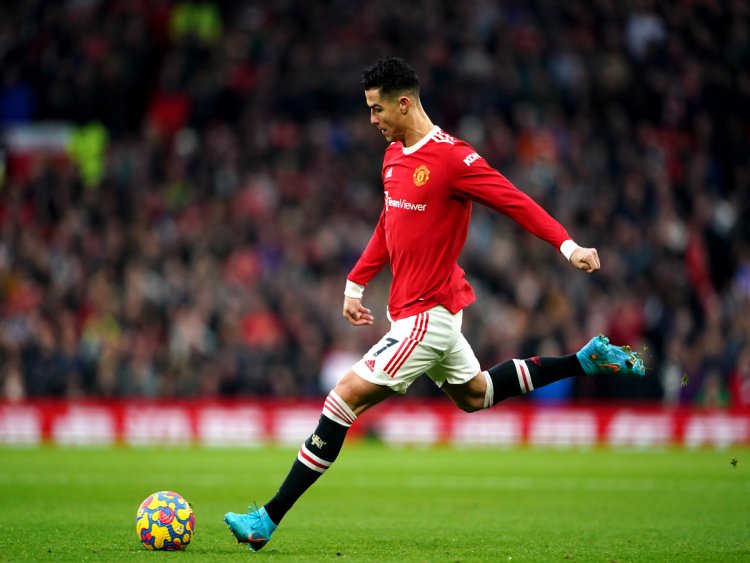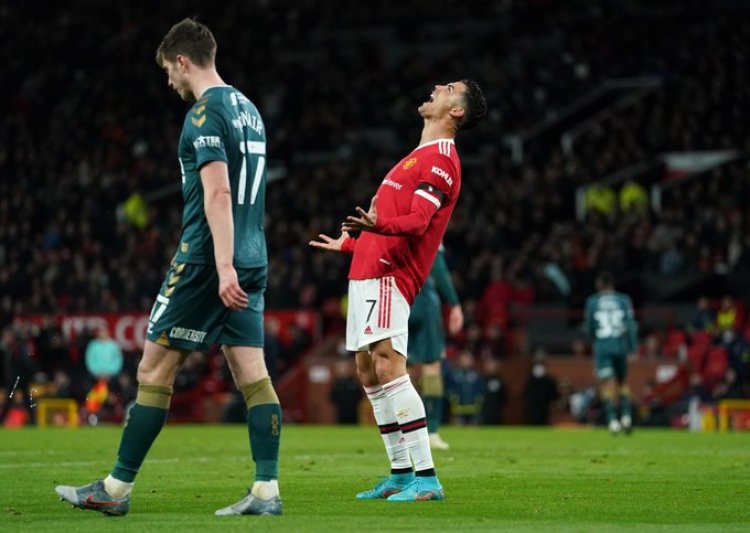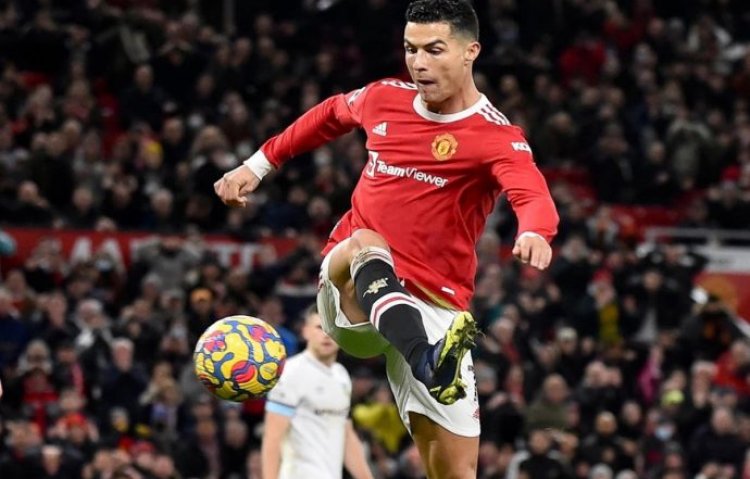MANCHESTER DERBY: Ronaldo’s poor free-kick returns are signs of waning powers
The free-kick radar: Ronaldo has scored only one of his past 79 free kicks in league football and none in the Champions League since September 2016.

This week a thirty-something Portuguese forward, one of Alex Ferguson’s most famous signings, rolled back the years and screamed home a free kick. It was an astonishing strike, hit from 30 yards with that strange, wobbling, trajectory known as a “knuckleball” and it seared past a leading goalkeeper into the top corner reports The Times of London.
But the taker was not Cristiano Ronaldo — come on, this isn’t 2009. Rather it was Bebé, scoring for Rayo Vallecano against Real Betis’s Claudio Bravo in Spain’s Copa Del Rey. It seems that even a player once dubbed “Manchester United’s weirdest transfer” is trolling Ronaldo over what was once a trademark but is now his agony: set-piece goals.

Before today’s Manchester derby, Pep Guardiola spoke with diplomatic respect about “one of the greatest” players, suggesting Ronaldo remains a “goalscoring machine” but even if Ronaldo can emerge from his worst trough since his teenage years (for that’s what his 2022 form represents), it is hard to imagine one particular part of the contraption getting fixed.
The free-kick radar: Ronaldo has scored only one of his past 79 free kicks in league football and none in the Champions League since September 2016.
For United in 2021-22 he has had nine fruitless attempts, the most recent a rather anguished effort against Atletico Madrid that was still rising as it flew five feet over the bar, while Bruno Fernandes lowered his gaze and Alex Telles stood, hands on hips.
Ronaldo let Telles take United’s most recent free kick (versus Watford) so perhaps he is finally willing to give up duties, and one of football’s most stubborn sights will be no more: that of Ronaldo, grabbing the ball, placing it meticulously, adopting his studied stance and routine . . . then smashing it high or into the wall.

Four of Ronaldo’s five Premier League attempts in 2021-22 were blocked and the other missed the target. No goalkeeper has been tested and there has been a paradigm shift inside Old Trafford. There, once upon a time, when Ronaldo lined up a free kick opposition fans could barely look. Now it is home ones.
What happened to the marksman who has still scored more free kicks than any player in Champions League history, who in his first spell at United became synonymous with dead-ball prowess, the “Rocket Ronaldo!!!” of Sky Sports commentary when he struck against Portsmouth in 2008, acclaimed by Ferguson as the Premier League’s best free kick ever?
There are theories. One is that a chronic injury that flared up in 2014 — tendinosis, affecting the region around his left kneecap — has compromised his kicking. Another blames a tweak of technique that occurred around 2011, when Ronaldo switched from a distinctive way of hitting free kicks with the top of his foot to a more side-footed style, seemingly in search of greater accuracy.
But what if the whole idea of Ronaldo as the fallen free-kick master is based on a false premise? He has certainly scored big and spectacular goals from set pieces (his first strike for United was a free kick, as was his 100th for Portugal) but has the frequency ever been that impressive?
For example, his last-minute equaliser in a 3-3 draw with Spain at the 2018 World Cup is part of his legend, but it stands as his only converted free kick in 51 attempts at leading tournaments since 2004. He has 55 career goals (including internationals) from free kicks — but has played 1,111 games.

Bartek Sylwestrzak is perhaps football’s leading ball-striking specialist coach. The first point the Pole makes is that the lack of understanding and coaching of ball-striking is “the greatest paradox in the game” — it’s one of its most important, yet also most understudied and undercoached elements, and one that defeats even great players. “With Ronaldo, we’re talking about a top player suffering from the same technical problems for about 15 years now. He’s not been able to solve them himself and he’s not had anyone to help him,” Sylwestrzak says.
Even in his peak period, when scoring 24 league free kicks for United and Real Madrid from 2008 to 2014, Ronaldo’s conversion rate was 7.7 per cent. This compares with 11 per cent for Lionel Messi during his zenith and the 13 per cent, achieved since the start of 2013-14 by James Ward-Prowse, rated by Guardiola as “the best taker right now in the world”.
But, for Sylwestrzak, the common perception of free-kick excellence is flawed. If you want to see what it truly looks like, he says, study a legendary trinity of Brazilians: Juninho Pernambucano, the former Lyons midfielder who scored a record 78 free kicks, Marcelinho Carioca, whose sublime ball-striking earned him the nickname “Angel Foot”, and who scored 77 free kicks plus three goals direct from corners, and Marcos Assunção, who in two years at Palmeiras scored 25 free kicks. Compare that with David Beckham, who took nine seasons to reach his Premier League record total of 18.

Juninho was an anomaly — a maestro of both. Ronaldo, Sylwestrzak says, has never mastered the lifted topspin shot that was used by the Brazilians, which is technically a different type of strike. He “relentlessly” hits knuckleball kicks.
They brought success early in his career (13 of his first 25 free-kick goals were knuckleballs) but often when striking from distance (like his 40-yarder against Arsenal in the 2009 Champions League semi- final). Now he blasts them from close range. Which is why he is far more a hazard to the wall than the scoreboard. “With Ronaldo there is clearly a struggle to lift the ball well. He’s been hitting the wall for about 15 years now.”
Juninho, who arrived at Lyons in 2001, popularised the knuckleball in Europe, and Ronaldo was an early adopter. But goalkeepers are more used to the technique now and are perhaps more attuned to deal with such strikes. Even when Ronaldo does get one of his strikes past or through the wall, it’s more “saveable”.




















